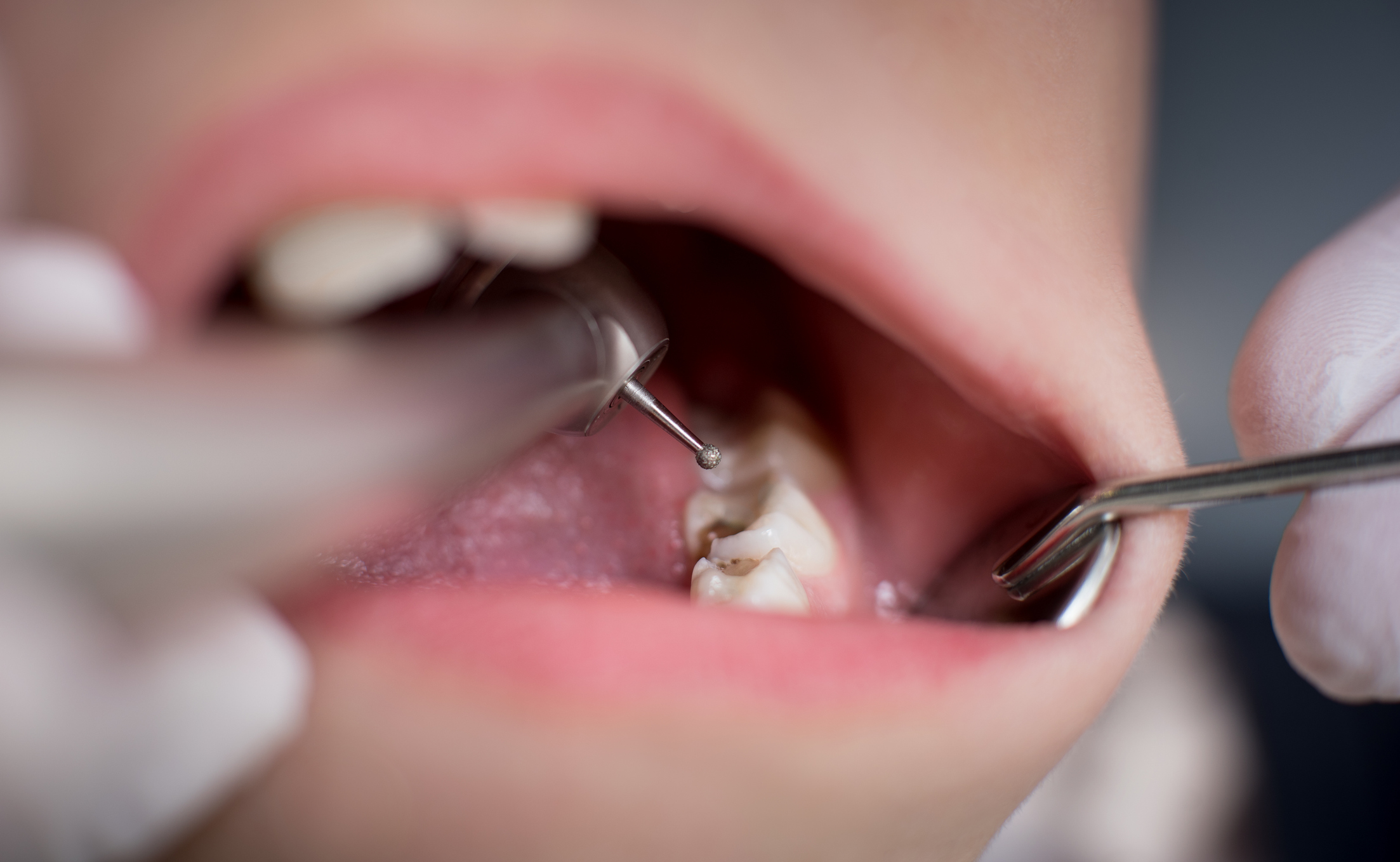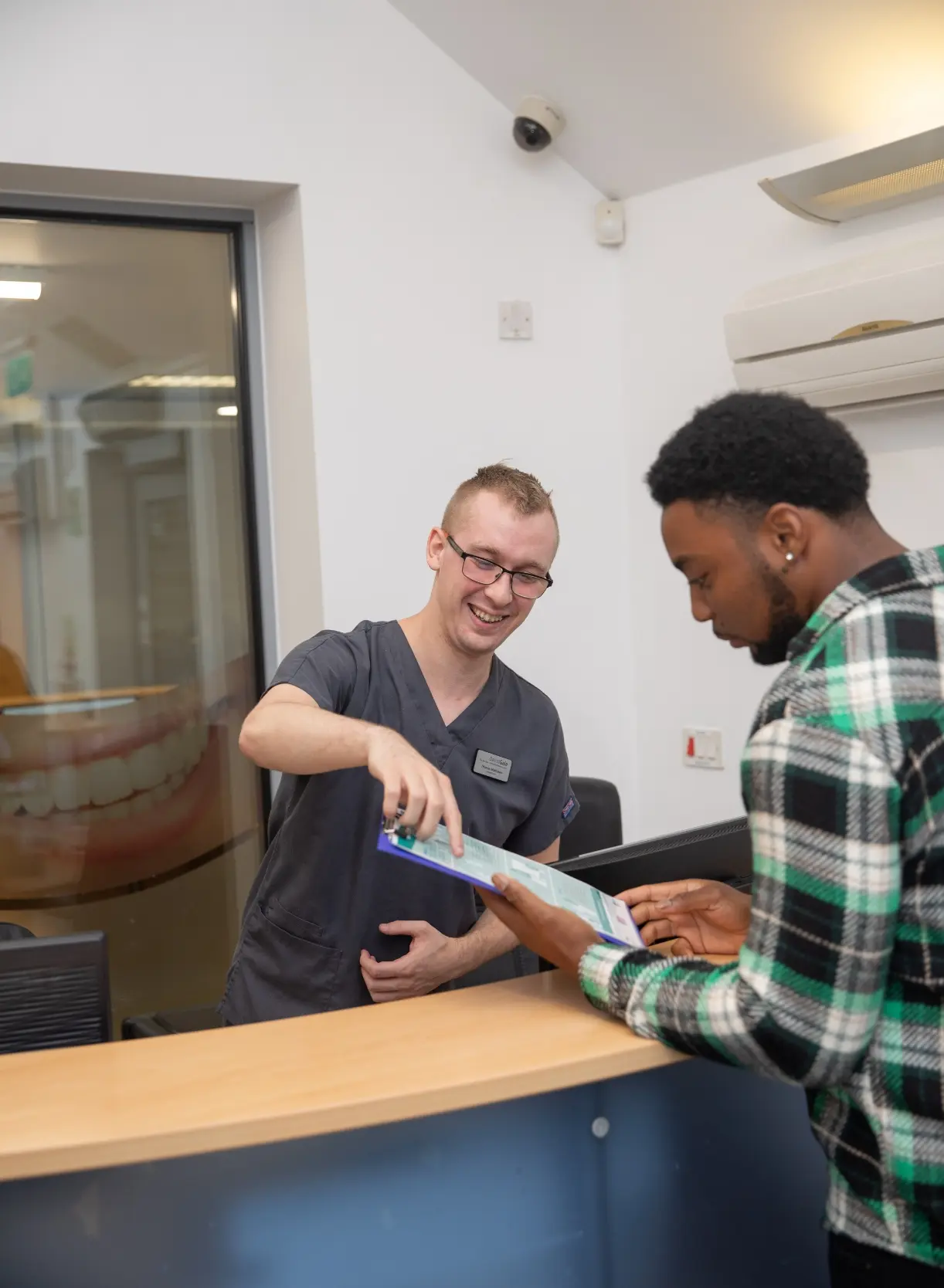Halloween is a time of spooky fun, costumes, and, inevitably, a substantial haul of sweets. While indulging in a few treats is part of the tradition, it is crucial to understand the impact of sugar on your oral health—especially for our younger residents across the UK. As leading experts in dental care, we want to equip you with the knowledge and practical tips to enjoy the season without compromising your radiant teeth.
The main adversary to a healthy smile is not a ghost, but the acid produced when you consume sugar. When you eat sugary snacks and beverages, the bacteria in dental plaque—that sticky film constantly forming on your teeth—quickly convert the sugar into acid. This acid then begins the process of dissolving your tooth enamel, the hard, protective outer layer of your teeth.
This breakdown is known as demineralisation, and if left untreated, it leads to holes or cavities in the teeth’s structure. Put simply, tooth decay begins here. It is a preventable disease, yet it remains one of the most common health problems in the UK, second only to the common cold, with statistics showing that many adults and children suffer from some form of decay in their teeth.
The progression from tooth decay to dental caries (the irreversible damage or cavity) is a serious concern. If caries is not managed swiftly, they can progress deeper into the teeth, causing pain, discomfort, and potentially systemic infection. Dental caries can have serious health consequences, and in the most severe cases, untreated decay is a major cause of tooth loss, profoundly affecting an individual’s ability to eat, speak, and their overall quality of life.
The World Health Organization (WHO) and the UK’s own Scientific Advisory Committee on Nutrition (SACN) have extensively reviewed the evidence, confirming that consumption of free sugar is a major risk factor for dental caries.
Children and adolescents are, sadly, at a heightened risk of developing dental caries due to high sugar consumption, often starting at an early stage when habits are formed. The WHO recommends a reduction in sugar consumption to prevent dental caries, specifically limiting sugar intake to less than 10% of total energy intake—and ideally less than 5%—to minimise the risk throughout the life course.
Sugary snacks and beverages significantly increase the likelihood of dental caries by creating frequent, prolonged acid attacks on the tooth enamel of your teeth.

If you or your child are currently undergoing orthodontic treatment, you can absolutely enjoy candy if you choose carefully—but a different set of rules applies, not only for oral health but also for the preservation of the appliance itself. Some treats are simply tricks in disguise.
The good news is that softer, melt-in-your-mouth candies are generally safer for your teeth and your orthodontic treatment.
A cautionary note: excess candy can cause white marks on teeth around braces. These white spots are areas of demineralisation—early stages signs of tooth decay—where acid has begun to strip away minerals from the enamel adjacent to the brackets. While manageable, preventing them in the first place is always the best approach for long-term oral health.
Book a consultation
No matter your age or whether you wear braces, a heightened intake of sugar demands an elevated standard of dental care.
Brushing thoroughly after eating candy is essential for dental hygiene, especially with braces. The aim is to remove the sugar before the plaque bacteria can convert it all to acid. An electric toothbrush is highly recommended as studies show it can remove significantly more plaque than a manual brush, effectively cleaning around brackets and wires on your teeth.
Dental brushes and interspace brushes at least once daily is important with braces. This requires patience and often specialised interdental brushes to ensure you are reaching the areas beneath the wires where food debris and plaque accumulate, preventing gum problems.
Rinsing with mouthwash containing fluoride can reduce bacteria and helps to strengthen tooth enamel—a perfect countermeasure against the acid challenge from Halloween treats. Fluoride toothpaste also helps strengthen enamel around braces, making the teeth more resistant to dental caries.
Book a consultation
While a rigorous home routine is essential, it is only part of the solution. Our strategic approach to oral health involves routine professional dental care. This comprehensive care is essential to achieving and maintaining a truly beautiful smile.
Routine check-ups and cleanings are crucial. A check-up involves a thorough examination for signs of tooth decay, gum disease, and oral cancer. This is followed by a cleaning that removes plaque and tartar (hardened plaque) that cannot be removed by brushing alone. Preventive dental procedures, such as professional cleanings and dental sealants, are invaluable in maintaining oral health and preventing future issues in your teeth.
In the event of damage or decay, common dental procedures like fillings restore a tooth's structure by filling cavities to prevent decay from progressing. For badly damaged or decayed teeth, crowns cover and protect them, restoring their shape, size, and strength. For more complex cases, such as an infected pulp, root canal therapy removes the infection to save the tooth from extraction.
Every smile is different – your treatment plan should too be unique. If you are seeking to improve your smile’s appearance, teeth whitening uses professional bleaching agents to lighten the colour of teeth and improve smile brightness.
We take an expert yet approachable approach, always discussing the most appropriate options with you—whether it's the right choice of orthodontic appliance or the best path for restorative treatment. For instance, if you’d like a more discreet option for your smile journey, modern aligners might be right for you. Our commitment is to inspire trust while remaining easy to follow and fully transparent.
Book a consultation
Free NHS dental care in the UK is generally limited to certain groups. You are entitled to free treatment if you are: under 18 (or under 19 and in full-time education).
Dental care maintains and restores the oral health of your teeth, gums, and mouth. It involves preventative measures (check-ups, professional cleanings) to prevent issues like tooth decay and gum problems, and restorative treatments (fillings, crowns, implants) to fix problems that have already occurred.
Yes, candy is a significant cause of cavities. The free sugars in candy are converted into acid by bacteria in the mouth, which dissolves tooth enamel and leads to dental caries.
Sticky, chewy, and hard sugary snacks tend to cause the most cavities because they adhere to the teeth for a long time or require biting pressure that pushes sugar into crevices. Examples include gummy sweets, toffee, hard-boiled sweets, and dried fruit.
To minimise the risk of dental caries, you should limit all sugary treats to mealtimes only, and not more than once a day. This allows your saliva to neutralise the acid and gives your tooth enamel time to remineralise between sugar exposures. Frequent snacking on sugary items is the main danger to your teeth.
Significantly reducing your intake of free sugars will dramatically lower your increased risk of developing new cavities. However, you must also maintain excellent dental care practices, such as brushing twice a day with fluoride toothpaste and flossing daily, as other factors still contribute to tooth decay.
Softer, melt-in-your-mouth candies are the best for braces and your orthodontic treatment. Plain chocolate and soft, chewable cookies are generally less harmful as they pose minimal risk of breaking brackets or wires.
No, you should strictly avoid chewing hard or sticky candy (e.g., caramels, toffee, chewing gum) as this can easily damage your wires and pop brackets off your teeth, leading to emergency repairs and extended orthodontic treatment time.
Braces friendly sweet snacks include soft chocolate, soft cakes or pastries, soft cookies, soft fruits (bananas, peeled apples, soft berries), and soft dairy products like plain yoghurt or milk puddings. Focus on items you can cut up and chew gently. Try to keep these to meal times to avoid demineralisation of your teeth.

Let us help you with our specialised orthodontic care.
Our friendly and welcoming team are waiting to hear from you!